Italian Unit
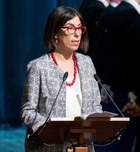
Giulia Albanese
Università di Padova
Giulia Albanese is Associate Professor of Contemporary History at the University of Padua. She pursued her PhD at the Eui, in Florence. Her research focuses on fascism, political violence and authoritarian cultures in the interwar years, and more recently with citizenship in the same context. She is the author of Dittature mediterranee. Sovversioni fasciste e colpi di stato in Italia, Spagna, Portogallo (Laterza, 2016) andLa Marcia su Roma (Laterza, 2006, new edition Routledge 2019). With Roberta Pergher she edited In the society of Fascists: Acclamation, Acquiescience and Agency in Mussolini’s Italy, Palgrave Macmillan, New York (Palgrave Macmillan, 2012).
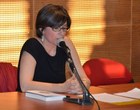
Elena Bignami
Elena Bignami is a PhD in Institutions and Society. Theory and history of Italian modernization and social change in the contemporary age (University of Siena). She collaborated with the Department of History, Culture and Civilization of the University of Bologna and the Institute for the history and memories of the twentieth century Parri E-R. She is a member of the Scientific Committee of the Archivio Famiglia Berneri – Aurelio Chessa and collaborates with the Anarchist Women Documentation Center of Reggio Emilia. He has been working for some time on the issues of female militancy and the perception of women within the Italian anarchist movement. In recent years it has also focused on the history of political emigration from Italy to Brazil between the 19th and 20th centuries. Among the publications there are two books - «Le schiave degli schiavi». La “questione femminile” dal socialismo utopistico all’anarchismo italiano (1825-1917), Clueb 2011; In viaggio dall’utopia al Brasile. Gli anarchici nella migrazione transoceanica verso il Brasile (1876-1919), BUP 2017 - and various essays.
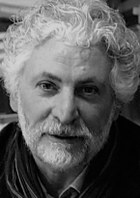
Alfonso Botti
Università di Modena e Reggio Emilia
Alfonso Botti is Full Professor of Contemporary History in the Department of Studies on Language and Culture at the University of Modena and Reggio Emilia. Since January 2017 he’s been the Course Director of the bachelor’s degree programme in Humanities for the Study of Culture, recently re-formed and renamed as History and Contemporary Cultures at the beginning of 2018. In the University of Modena and Reggio Emilia he also assumed the positions of Head of the Depart-ment of Studies on Language and Culture (2010-2012), Academic Senate Member representing the category of Full Professors of the Macroarea 3 (2012-2015) and Scientific Director of the Humanities Library (2012-2015). He was board member for the PhD programme in “Political contemporary history in the 19th and 20th centuries ‘Federico Chabod’” (Libera Università Internazionale degli Studi Sociali “Guido Carli” LUISS-ROMA) in 2007, and for the PhD progamme “Contemporary history in the 19th and 20th cen-turies ‘Federico Chabod’” (University of Bologna) from 2008 to 2009. He’s been board member for the PhD programme in “Human sciences” (University of Modena and Reggio Emilia) since 2013. From 2013 to 2016 he was council member of the Sissco (Società Italiana per lo Studio della Storia Contemporanea), of which he served as vice President from September 2015 until September 2016.
Riccardo Brizzi
Università di Bologna
Riccardo Brizzi teaches Contemporary History and History of Political Communication at the Department of Arts, University of Bologna and has been Visiting Professor at various European universities. He is Director of the Master's Degree Course in Sport Communication and Marketing at the University of Bologna. He is the author of various studies and monographs on political history, with a focus on French political history, the history of political communication and the history of the relationship between sport and politics. Recent publications include: R. Brizzi, N. Sbetti, La diplomazia del pallone. Storia politica dei Mondiali di calcio (1930-2022), Florence, Le Monnier, 2022; R. Brizzi, M. Lazar (sous la direction de), La France d'Emmanuel Macron, Rennes, Presses Universitaires de Rennes, 2018; R. Brizzi, De Gaulle and the Media. Leadership, TV and the Birth of the Fifth Republic, Basingstoke, Palgrave Macmillan, 2018.

Vittorio Caporrella
Università di Bologna
Adjunct professor and research assistant at the Department of History and Cultures at the University of Bologna since 2009. I work on dissemination of research results, teaching of history, peer review processes, quality assurance of research. I have worked for several years in the production of textbooks for lower and upper secondary schools. After a PHD in contemporary history focused on the history of language rights in Austrian-Hungarian schools, my research focused on Family History and History of Education. My current interests focus on comparative analysis of history textbooks for secondary schools. I teach History Didactics at the University of Bologna. I coordinate the “What History AT School Lab” (WHATSlab) and I am managing editor of the e-journal “Storicamente” (www.storicamente.org). My main publications are: “Il metodo figurale nell’estetica fascista: la Mostra Augustea della Romanità”, in: Estética dos regimes autoritários e totalitários, Edited by Nuno Rosmaninho, Coimbra, Imprensa Universidade de Coimbra (2020);. “Le associazioni degli insegnanti italiani a Trieste e l'identità linguistico-nazionale alla vigilia della Prima guerra mondiale”, Quale storia, 43 (1), 2015, pp. 45-73; “Scuola, diritto linguistico e identità nazionale. Il caso del Ginnasio di Gorizia”, 1910-1912, in Trento e Trieste. Percorsi degli italiani d'Austria dal '48 all'annessione, a cura di Fabrizio Rasera, Accademia Roveretana degli Agiati, Ed. Osiride, 2014, pp. 259-284; “La famiglia nella Costituzione italiana. La genesi dell'articolo 29 e il dibattito della Costituente”, Storicamente, (6), 2010, DOI: 10.1473/stor70; “A Trieste tra Otto e Novecento: tra casa e scuola in luogo di confine”, in Famiglia e nazione nel lungo Ottocento italiano. Modelli, strategie, reti di relazioni, a cura di Ilaria Porciani, Viella, Roma, 2006, pp. 189-216; Strategie educative dei ceti medi italiani a Trieste tra la fine del XIX sec. e il 1914 - Erziehungsmuster von italienischen Familien des Mittelstandes im Triest der Jahrhundertwende, Freie Universität Berlin UB, Berlin, 2009; La Famiglia: un'istituzione che cambia, Gedit Edizioni, Bologna, 2008.
Paolo Capuzzo
Università di Bologna
Paolo Capuzzo is Professor of Contemporary History and Director of the Department of History and Culture at the University of Bologna. He is a member of the board of the Academy of Global Humanities and Critical Theory and has been a visiting scholar at the Universities of Vienna, Technische Universitaet Berlin, Deutches Museum Munich, Université libre Bruxelles, Université de Tours, Paris VII, Universitat de Barcelona, University of Chicago, and Duke University. His currentfields of research are the history of material culture, the history of Global Communism, and Gramsci. Capuzzo is the author of Culture del consumo (2006), P. Capuzzo and S. Pons (eds.), Gramsci nel movimento comunista internazionale (2019). His scholarship has appeared in The Oxford Handbook of the History of Consumption (Oxford UP, 2012); The Postcolonial Gramsci (Routledge, 2013), Europe’s Postwar Periods 1989, 1945, 1919 (Bloomsbury 2018); and Food Heritage and Nationalism in Europe (Routledge, 2019).
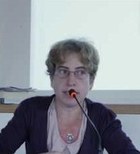
Francesca Cavarocchi
Università di Firenze
Francesca Cavarocchi received her doctoral degree in European History at the University of Bologna, and has been awarded research grants and fellowships by the universities of Bologna, Teramo and Udine; she is currently temporary research fellow at the University of Florence. Her interests include the historical and sociological perspectives of antisemitism in Italy, fascist foreign policy, the memory of fascism in Europe, and the protection of cultural heritage in 20th century Italy. Her publications include Avanguardie dello spirito. Il fascismo e la propaganda culturale all’estero (Rome, Carocci, 2010) and, together with Elena Mazzini, La Chiesa fiorentina e il soccorso agli ebrei. Luoghi, istituzioni, percorsi (1943-1944) (Rome, Viella, 2018).

Mirco Dondi
Università di Bologna
Mirco Dondi has studied italian history addressing the following issues:
- the role of the press in the years of fascist squad (1920 - 1923);
- social conflicts in Bologna countryside (1900 - 1960);
- the power struggles within the partisan resistance movement (1943 - 1945); - violence in the second post-war (1945 - 1946);
- the season of black massacre from 1969 to 1974 reading it within the Cold War mechanisms, and the relationship between information and terrorism.
Since 2009 he has been directing the Master in Historical Communication, an opportunity to reflect on the forms of public communication linked to culture and history.
He is now working on a monografy on the role of television in the 1980s.
Monografies
12 Dicembre 1969. La strage di Piazza Fontana, Roma - Bari, Laterza, 2018.
L’eco del boato. Storia della strategia della tensione 1965 – 1974, Roma-Bari, Laterza, 2015.
Dagli albori della sindacalizzazione alla trasformazione delle campagne, Bologna, Archetipo libri, 2012.
L'Italia repubblicana. Dalle origini alla crisi degli anni Settanta, Bologna, Archetipolibri, 2007.
La Resistenza tra unità e conflitto, Milano, Bruno Mondadori, 2004.
La lunga liberazione. Giustizia e violenza nel dopoguerra italiano, Roma, Editori Riuniti, 1999, 2^ed. 2004, 3^ed. 2008.
As Editor
Comunicazione Storica. Approcci interdisciplinari, Bologna, Biblioteca Clueb, 2020.
Sessantotto. Luoghi e rappresentazioni di un evento mondiale, Milano, Unicopli 2018.
I neri e i rossi. Terrorismo, Violenza e Informazione negli Anni Settanta, Nardò, Controluce, 2008.
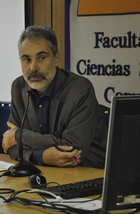
Alessio Gagliardi
Università di Bologna
Alessio Gagliardi is associate professor of Contemporary History at the University of Bologna. His research focuses on Fascism, anti-Fascist movements, the political thought of Antonio Gramsci and social movements in contemporary Italy. Among other publications, he is the author of L’impossibile autarchia. La politica economica del fascismo e il Ministero scambi e valute (Rubbettino, 2006); Il corporativismo fascista (Laterza, 2010); Il ’77 tra storia e memoria, Manifestolibri, Roma 2017 and numerous articles in national and international journals, book chapters and conference papers. He is also member of the editorial boards and scientific committees of the journals “Italia contemporanea”, “Studi Storici”, “Le Carte e la Storia”, and member of the scientific committee of the Gramsci Institute Foundation, Rome.
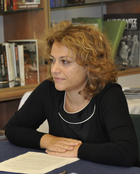
Valeria Galimi
Università di Firenze
Valeria Galimi is a tenure track Assistant Professor in Contemporary History at Sagas Department since December 2018 and Chercheuse associée at the Institut d’histoire du temps présent (Paris).
She earned her PhD in History at Scuola Superiore Sant’Anna in Pisa (doctorante associée at the Institut d’histoire du temps présent). Post-doc at the IHTP, she has been assegnista di ricerca at University of Modena and Siena (2005-2009) and at University of Tuscia (Viterbo, 2013-2015). In 2016-2018 she has been Research Lecturer (ricercatrice TDA) at the History Department, University of Milan. In 2009-2010 she taught on Methodology of History at Sciences Po Paris. She has been a Fellow at the Sciences Po Paris (2009-2010), the International Institute for Holocaust Research, Israel (2010-11); The Vidal Sassoon International Center for the Study of Antisemitism, Hebrew University, Israel (2013) and European University Institute (2014), the Mandel Center for Advanced Holocaust Studies, Washington (2016); the center SIRICE (CNRS- Université Sorbonne Paris I and IV, Identités, Relations Internationales et Civilisations de l'Europe) (2017). She has been a Visiting Professor at Ecole Normale Supérieure in Paris (2015) and at the Université Paris VIII (2018).
She has research experience in several areas of contemporary history, in particular the political and cultural history of Contemporary France, the history of antisemitism and fascism in Europe, the history of intellectuals in interwar period, the Second World War and the Holocaust. Galimi is currently writing a volume (in English) on political violence and “street antisemitism” in France in the 1930s in four cities: Paris, Strasbourg, Lyon and Oran.
Another field of interest for Galimi is public history. In particular, having been a curator of important exhibitions, public history through a reflection on historical exhibitions and museums. Since 2017 she teaches in the Master of Public History course promoted by the University of Milan and the Fondazione Feltrinelli. She is actively involved in the Erasmus Mundus Joint Master Degree "History in the Public Sphere" (Sagas Unifi, Central European University, Budapest-Vienna, Universidade NOVA de Lisboa, Tokyo University of Foreign Studies) as member of Evaluation committee.
In 2020-2022 she is also responsible for a project on the internment camps and detention spaces in Tuscany during WWII funded by the PorFSE 2014-2020 program (assegnista di ricerca dr. Chiara Renzo). In the Sagas Department, she is a member of the SAGAS Unit research MTS (Modern Transcultural Studies). In 2013-2019 she has been editor of Società italiana per lo studio della storia contemporanea (Sissco) Journal Mestiere di storico. She is a member of editorial board of scientific journal Società e Storia and Passato e presente, for which she is co-coordinator of editorial board.
Some of her latest publications include: L’antisemitismo in azione. Pratiche antiebraiche nella Francia degli anni Trenta [Antisemitism in Action. Anti-jewish practices in France during the 1930s] (2006, 2 ed. in print); Sotto gli occhi di tutti. La società italiana e le persecuzioni contro gli ebrei [Under everyone’s eyes. Italian Society and persecution against the Jews] (2018); The image of “all good Italians”. The Eichmann trial seen from Italy, «Journal of Modern Italian Studies», Special Issue edited by A. Capristo, E. Ialongo, v. 24, 2019, pp. 115-124; G. von Frijtag, V. Galimi, (eds), Microcosms of the Holocaust: Exploring New Venues into Small-Scale Research of the Holocaust, Special Issue, «Journal of Genocide Research», 3/2019; V. Galimi, A. Gori (eds.), Intellectuals in the Latin space during the era of Fascism. Crossing borders, London, Routledge, 2020.
For a complete publications list see https://www.academia.edu/40755211/2020._Publications_List

Annarita Gori
Universidade de Lisboa - Instituto de Ciências Sociais
Annarita Gori (Arezzo, Italia 1982) earned a BA in European Studies (2004) and a MA in History (2006) from the University of Siena.
In 2009 she was Marie Curie visiting Fellows at Institute of Social Science at the University of Lisbon (ICS-UL) within the program “Marie Curie European Doctorate – Building the Past”. In 2008 and 2010 she obtain a scholarship by the Cassa di Risparmio di Firenze and in 2012 she earned her PhD from the University of Siena with the additional title of Doctor Europeus
In 2012, her project ‘The Exportation of the Portuguese Estado Novo’s Identity’ (SFRH/BPD/89272/2012) was awarded a competitive six-year grant by the Portuguese Foundation for Science and Technology, and during the period 2013-2019 she have studied the Estado Novo’s cultural propaganda between Italy and Portugal during the interwar years as a post-doc researcher at Institute of Social Science at the University of Lisbon. During this period she also spent some period abroad as Visiting Scholars at NYU (2015) and SciencesPo (2016).
She is currently Associate Researcher at ICS-UL and her field of expertise is the cultural propaganda of right wing dictatorships and the intellectual networks in the interwar Europe. In particular, her research addresses: the nation building process and its interpenetration with political identities, public use of the past as regime legitimacy, exhibitions and museums in dictatorial contexts, the circulation of ideas, intellectual networks and, more recently, pan-nationalisms. She as widely disseminated on these topic in four languages (English, Portuguese, Italian and Spanish). Her last work was published in the top ranking journal Cultural and Social History and she currently co-edited a book for Routelge.
Dr. Gori is also member of several associations and she actively participated in two international and interdisciplinary groups of investigations: Direitas, História e Memória, based at Universidade de Juiz de Fora (Brasil) and La Raza Latina, La pátria Hispana Intelectuales, identidades colectivas e proyectos entre as organizações España, Itália e Argentina (1880-1945), based at University of Gerona.
Finally she just won the FLAD-Brown Program and during the 2020 Spring Semester she will join the Department of Portuguese and Brasilian Studie at Brown as Visiting Professor.
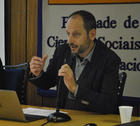
Matteo Pasetti
Università di Bologna
Matteo Pasetti is Associate Professor at the Department of Philosophy and Communication Studies, University of Bologna. Here he teaches History of mass communication at the School of Arts, Humanities, and Cultural Heritage. In the past, he has been research fellow at the Department of History and Cultures (University of Bologna) and, from 2009 to 2014, he held courses of contemporary history at the University of Modena and Reggio Emilia. He obtained his PhD at the University of Urbino in History of Political Movements, where his research focused on the roots of fascism, trade-union traditions, and ideological synthesis.
He is the author, among other publications, of Tra classe e nazione. Rappresentazioni e organizzazione del movimento nazional-sindacalista, 1918-1922 (Carocci, Roma 2008), Storia dei fascismi in Europa (Archetipolibri, Bologna 2009), and L'Europa corporativa. Una storia transnazionale tra le due guerre mondiali (Bononia University Press, Bologna 2016). He is the editor of Progetti corporativi tra le due guerre mondiali (Carocci, Roma 2006), Tra due crisi. Urbanizzazione, mutamenti sociali e cultura di massa tra gli anni Trenta e gli anni Settanta (Archetipolibri, Bologna 2013), and 1943. Guerra e società (Viella, Roma 2015).

Pietro Pinna
Università di Torino
Pietro Pinna is Associate Professor at the Department of Cultures, Politics and Society of the University of Turin and he is member of the Scientific Committee of the Ph.D. program in Global History of Empires. He has been Research Fellow at the Department of History and Cultures of the University of Bologna (2015-2019) and Visiting Fellow at University of California-Berkeley and San Francisco State University. He received his Ph.D. in Political and Social History of Modern and Contemporary Europe from University of Rome “Tor Vergata”. He is member of the Scientific Committee of the Istituto di Storia Contemporanea in Ferrara. His current research interests include the study of the spread of fascism in the Italian communities abroad and the Italian immigration to California. He has published the books La valle del vino (Roma, 2023) and Migranti italiani tra fascismo e antifascismo (Bologna, 2012) and several articles in Italian, French and American journals and edited books, including: I migranti meridionali in Francia tra le due guerre mondiali(«Meridiana», 2018), La fascistizzazione dei migranti italiani in Francia e Brasile: una comparazione, («Storicamente», 2017), “Fresh Water Triumphs”: The Italian American Wine Industry’s Struggle against Prohibition in California («The Italian American Review», 2018), L’industria vinicola italo-americana in California e il proibizionismo («Italia Contemporanea», 2019), Donne in the Vineyards: Italian-American Women in the California Wine Industry («Gender & History», 2022), La Colonna della Discordia: il “Balbo Monument” di Chicago tra propaganda e memoria («E-Review», 2022), Costruire l’antifascismo: comunisti e migranti nella Francia tra le due guerre (in Di Sanzo, Ferrarese (eds.), La questione migratoria. Le politiche del mondo comunista nell’Italia del Novecento, Carocci, 2024).

Emanuel Rota
University of Illinois Urbana-Champaign
Emanuel Rota is Associate Professor in the Department of French and Italian and an affiliate in the Jewish Studies Program, the Unit for Criticism and Interpretive Theory and the Department of History. He holds a PhD in History from the University of California (Berkeley), a Master in History from the University of Oregon and a Laurea from the Università di Pavia. He wrote his Tesi di Laurea on the Italian Communist Party and the process of European Unification and his MA thesis on the Europeanist projects of the anti-liberal Left and the anti-liberal Right in Europe in the 20s and 30s. Europe and its identity have always been at the center of his research. His first book, A Pact with Vichy, examines the intellectual trajectory of one of the founders of the Italian Communist Party from socialism to collaboration with fascism. He has published articles on radicalism, colonialism, and biopolitics. He is completing a monograph on the history of the capitalist work ethic and its relationship with colonialism, racism and European Identity, tentatively titled “A History of Laziness: Natives, Southerners, Workers and the Modern Work Ethics.”
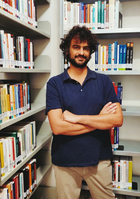
Daniele Serapiglia
Universidad Complutense Madrid
Dr Serapiglia is currently a Ramón y Cajal researcher in História Contemporânea at the Universidad Complutense de Madrid. Dr Serapiglia is himself a good example of a 'European researcher' and a representative of the 'Erasmus generation'. His Erasmus exchange in Coimbra during the academic year 2000-2001 was the starting point of his international academic career. After graduating in Humanities and specializing in Modern History in 2004, Dr Serapiglia earned a PhD in European History at the University of Bologna and at University of Coimbra in 2009. His doctorate focused on corporatism in the New Portuguese State. From 2012 to 2013, he received a grant from the Gulbenkian Fundation of Lisbon to work on the project “Italian fascism in Portugal. The regime of Mussolini seen through Portuguese newspapers and magazines between 1922 and 1945” (11.000,00 €). Dr Serapiglia has published in 5 different languages (Italian, Spanish, Portuguese, French, and English). He is the author of several essays on the Portuguese Estado Novo; in 2011 he published a monograph entitled La via portoghese al corporativismo [The Portuguese Way to Corporatism]. In 2014 he edited and wrote the introduction to the Italian edition of Antonio Ferro's Interviews with Salazar. Since 2011, he has focused on the social history of sport, publishing articles, book chapters, and editing the book “Tempo libero, sport e fascismo” [Free Time, Sport and Fascism], published in 2016. Additionally, Dr Serapiglia worked at the University of Bologna until May 2016 on the post-doctoral project “Social History of Italian Volleyball” (58.101,00 €). In 2018, he published the monograph “Uno sport per tutti. Soria sociale della pallavolo italiana (1918-1990)” [A Sport for Everyone. Social History of Italian Volleyball (1918-1990)]. This book has been adopted by the University of Bologna for its courses on sports education. This book was also of interest for important Italian newspapers and magazines such as Wired, Vanity Fair, and La Gazzetta dello Sport. The article "Il Barca̧ 'meś que un club': le radici del catalanismo blaugrana nel contesto della sportivizzazione spagnola", was published in the leading Italian peer-reviewed journal Spagna contemporanea; while the article "Fé e Futebol. Muscular Catholicism between Italy and Portugal in the European Identity (1922-1958)" was published in the impactful journal Lusotopie. The article “In Memory of the 1934 World Cup" has recently been accepted for publication in the prominent journal Soccer&Society. In 2022, Dr Serapiglia and Dr Juan Antonio Simón will publish the book Football and Fascism in the Iberian Peninsula, 1926-1975 as part of the Peter Lang Sport, History and Culture series. From 2013 to 2016 Dr Serapiglia led undergraduate seminars on the history of sport at the University of Bologna. From 2019 to 2021 Dr Serapiglia has been a postdoctoral researcher at the Universidade Nova de Lisboa working on the project entitled “A social revolution. Football and fascism in southern Europe from 1922 to 1975” (79.149,00 €). He has also given papers at international conferences on the history of sport and the history of fascism in Italy, Spain, Portugal, Brazil, Belgium, England and France. Dr Serapiglia is editor-in-chief of the Italian journal Storia dello Sport. Rivista di studi contemporanea and a member of the Scientific Committee of European Studies in Sport History. He was a visiting scholar in the Departamento de Motricidad, Rendimiento Humano y Gestión del Deporte at Universidad Europea de Madrid, the International Centre for Sports History and Culture at De Montfort University, Leicester and the Remarque Institute of New York University.
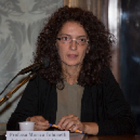
Marica Tolomelli
Università di Bologna
Marica Tolomelli is associate Professor in contemporary history at the Department for History and Cultures of Bologna University. She has an international academic background, since she has studied in Italy, France and Germany, where she earned her PhD at Bielefeld University. Her international education resonates in her research fields and methodologies, focusing on comparative and transnational history of social conflicts and social movements, political cultures, agency and networks including a gendered perspective. Most particularly, she has achieved a vast expertise on the history of social protests and movements within democratic orders in the second half of the 20th century and she is currently working at a project on the impact of women liberation movements on the understanding of democracy within the social-democratic and communist western European left in the late 1970s. She has participated and is currently participating in international, European projects; most recently CoHere, a European cooperation project co-financed by the Horizon 2020 research programme, which she has contributed to with a study on the way the 1968 movements challenged attitudes towards food consumption and conviviality habits; and Breaching the Wall, a project on the European memories of 1989 co-funded by the Europe for Citizens Programme of the European Union in collaboration with the Gramsci Foundation in Bologna). She has supervised and still supervises PhD and post-doc scholars, has co-tutored a bi-national PhD scholar (Universities of Bochum and Bologna) and she coordinates the double-degree program for the Master of History agreed between Bologna University and Bielefeld University in Germany.